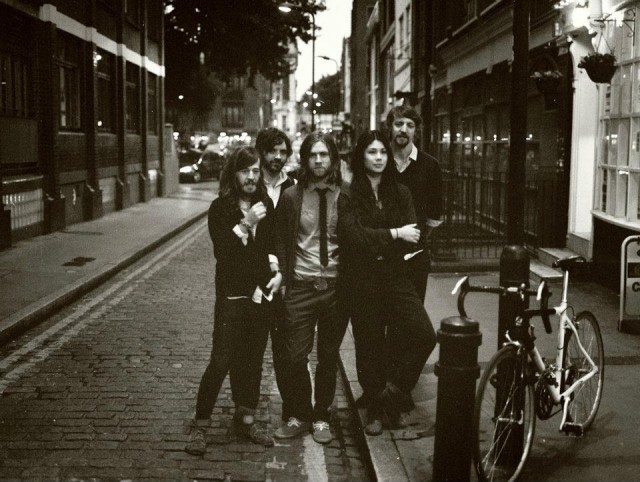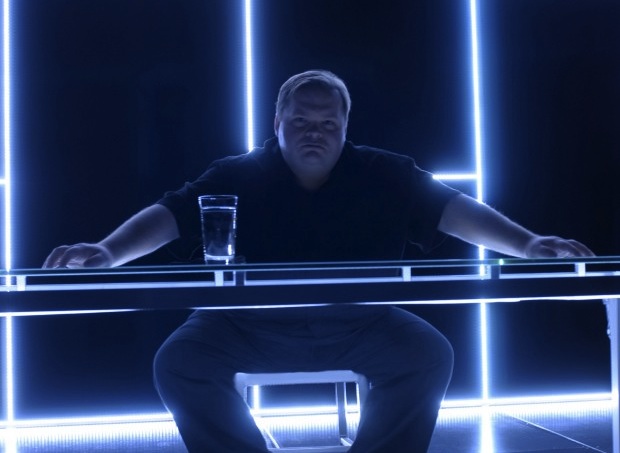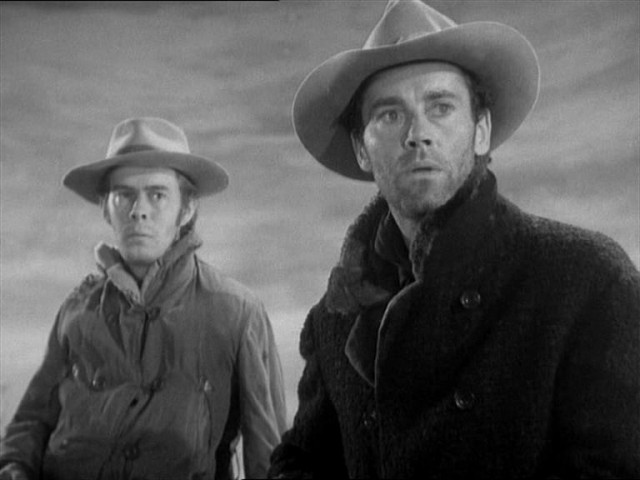
Harry Morgan and Henry Fonda are caught up in frontier justice in William Wellman’s searing OX-BOW INCIDENT
THE OX-BOW INCIDENT (William A. Wellman, 1943)
Film Forum
209 West Houston St.
Friday, February 17, 1:00, and Saturday, February 18, 2:00, 6:00, 9:20
Series continues through March 1
212-727-8110
www.filmforum.org
 In 1885 Nevada, members of a small town hear that one of their own has been murdered and his cattle stolen. Led by Major Tetley (Frank Conroy), his son, Gerald (William Eythe), and Jeff Farnley (Marc Lawrence), an angry posse sets out to find the killer thieves. They are joined by a pair of drifters, Gil Carter (Henry Fonda) and Art Croft (Henry/Harry Morgan), who don’t like what they’re seeing. The posse soon comes upon the trio of Donald Martin (Dana Andrews), Juan Martínez (Anthony Quinn), and Alva Hardwicke (Francis Ford), determining that they did the dirty deeds and must pay for their actions, leading to a heated debate over whether they should bring the three men in or hang them right there. Based on the 1940 novel by Walter Van Tilburg Clark, William Wellman’s harrowing classic is one of the greatest films ever made about frontier justice and mob vengeance. The scene in which the bold Martínez takes a bullet out of his body by all by himself is one of the most powerful moments you’re ever likely to see on-screen. In many ways, Fonda and Morgan play characters who are stand-ins for the audience, forcing viewers to examine what they would have done if ever put in similar circumstances. The Ox-Bow Incident is screening as part of Film Forum’s Wellman festival on February 17 at 1:00 by itself and three times on February 18 as part of a double feature with 1948’s Yellow Sky, a Western starring Gregory Peck and Richard Widmark.
In 1885 Nevada, members of a small town hear that one of their own has been murdered and his cattle stolen. Led by Major Tetley (Frank Conroy), his son, Gerald (William Eythe), and Jeff Farnley (Marc Lawrence), an angry posse sets out to find the killer thieves. They are joined by a pair of drifters, Gil Carter (Henry Fonda) and Art Croft (Henry/Harry Morgan), who don’t like what they’re seeing. The posse soon comes upon the trio of Donald Martin (Dana Andrews), Juan Martínez (Anthony Quinn), and Alva Hardwicke (Francis Ford), determining that they did the dirty deeds and must pay for their actions, leading to a heated debate over whether they should bring the three men in or hang them right there. Based on the 1940 novel by Walter Van Tilburg Clark, William Wellman’s harrowing classic is one of the greatest films ever made about frontier justice and mob vengeance. The scene in which the bold Martínez takes a bullet out of his body by all by himself is one of the most powerful moments you’re ever likely to see on-screen. In many ways, Fonda and Morgan play characters who are stand-ins for the audience, forcing viewers to examine what they would have done if ever put in similar circumstances. The Ox-Bow Incident is screening as part of Film Forum’s Wellman festival on February 17 at 1:00 by itself and three times on February 18 as part of a double feature with 1948’s Yellow Sky, a Western starring Gregory Peck and Richard Widmark.
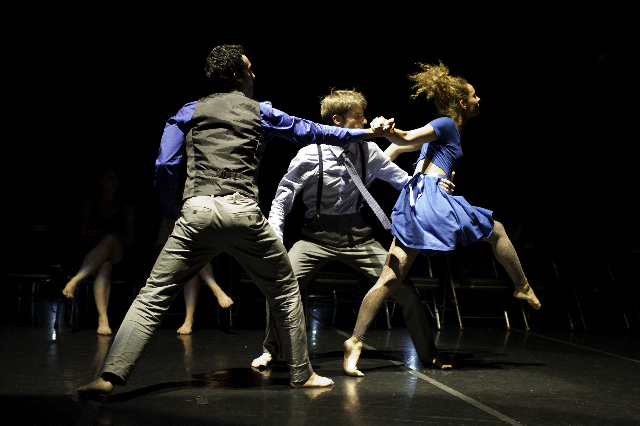
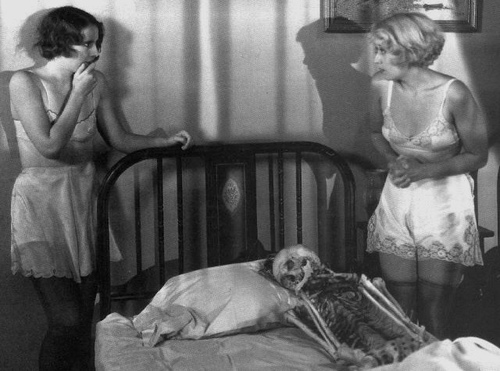
 Film Forum’s excellent William A. Wellman festival continues with one of the best examples of a pre–Hays Code film, the rarely screened 1931 doozy, Night Nurse. The first of five collaborations between Wellman and Barbara Stanwyck, Night Nurse, based on Dora Macy’s 1930 novel, stars Stanwyck as Lora Hart, a young woman determined to become a nurse. She gets a probationary job at a city hospital, where she is taken under the wing of Maloney (Joan Blondell), who likes to break the rules and torture the head nurse, the stodgy Miss Dillon (Vera Lewis). Shortly after treating a bootlegger (Ben Lyon) for a gunshot wound and agreeing not to report it to the police, Lora starts working for a shady doctor (Ralf Harolde) taking care of two sick children (Marcia Mae Jones and Betty Jane Graham) whose proudly dipsomaniac mother (Charlotte Merriam) is being manipulated by her suspicious chauffeur (Clark Gable). Wellman pulls out all the stops, hinting at or simply depicting murder, child endangerment, rape, alcoholism, lesbianism, physical brutality, and Blondell and Stanwyck regularly frolicking around in their undergarments. It’s as if Wellman is thumbing his nose directly at the Hays Code in scene after scene. Although far from his best film — Wellman directed such classics as Wings (1927), The Public Enemy (1931), A Star Is Born (1937), Nothing Sacred (1937), Beau Geste (1939), and The Ox-Bow Incident (1943) — Night Nurse is an overly melodramatic, dated, but entertaining little tale with quite a surprise ending. Night Nurse is screening at Film Forum on February 16 as part of a triple feature with 1932’s The Purchase Price, starring Stanwyck and George Brent, and 1929’s The Man I Love, Wellman’s first all-talkie.
Film Forum’s excellent William A. Wellman festival continues with one of the best examples of a pre–Hays Code film, the rarely screened 1931 doozy, Night Nurse. The first of five collaborations between Wellman and Barbara Stanwyck, Night Nurse, based on Dora Macy’s 1930 novel, stars Stanwyck as Lora Hart, a young woman determined to become a nurse. She gets a probationary job at a city hospital, where she is taken under the wing of Maloney (Joan Blondell), who likes to break the rules and torture the head nurse, the stodgy Miss Dillon (Vera Lewis). Shortly after treating a bootlegger (Ben Lyon) for a gunshot wound and agreeing not to report it to the police, Lora starts working for a shady doctor (Ralf Harolde) taking care of two sick children (Marcia Mae Jones and Betty Jane Graham) whose proudly dipsomaniac mother (Charlotte Merriam) is being manipulated by her suspicious chauffeur (Clark Gable). Wellman pulls out all the stops, hinting at or simply depicting murder, child endangerment, rape, alcoholism, lesbianism, physical brutality, and Blondell and Stanwyck regularly frolicking around in their undergarments. It’s as if Wellman is thumbing his nose directly at the Hays Code in scene after scene. Although far from his best film — Wellman directed such classics as Wings (1927), The Public Enemy (1931), A Star Is Born (1937), Nothing Sacred (1937), Beau Geste (1939), and The Ox-Bow Incident (1943) — Night Nurse is an overly melodramatic, dated, but entertaining little tale with quite a surprise ending. Night Nurse is screening at Film Forum on February 16 as part of a triple feature with 1932’s The Purchase Price, starring Stanwyck and George Brent, and 1929’s The Man I Love, Wellman’s first all-talkie.